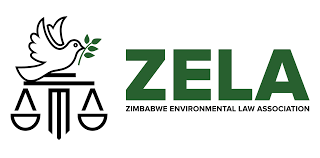The Zimbabwe Environmental Law Association (ZELA) has called for responsible reporting from media professionals when it comes to climate change.
Misinformation and disinformation have emerged as a significant barrier to public understanding and action.
In a recent radio interview, Batanai Mutasa, Media and Communications Officer for the Zimbabwe Environmental Law Association (ZELA), highlighted the urgent need for accurate, science-based reporting on climate change.
“Climate change misinformation refers to false or inaccurate information that is often shared unintentionally due to a lack of knowledge or understanding. Disinformation, however, is deliberately false or misleading information spread with the intent to deceive,” Mutasa said
According to Mutasa, the distinction between misinformation and disinformation is crucial, yet both can have severe consequences on public perception and policy. “The Intergovernmental Panel on Climate Change (IPCC) notes that regardless of intent, scientifically misleading information can have negative implications for climate policy,” he said.
One of the most persistent forms of disinformation, Mutasa pointed out, is climate denial—a narrative fuelled by fossil fuel companies and other vested interests. “Climate denial typically involves making claims that contradict the overwhelming evidence that human-caused greenhouse gas emissions are the primary driver of global warming. Denying this established science in the face of such robust evidence is not a credible or defensible position,” he said.
To combat this threat, Mutasa urged media outlets to rely on authoritative scientific sources and to engage with climate experts to ensure accurate reporting. “By hosting panel discussions, interviews, and other interactive content, media outlets can create opportunities for their audiences to engage meaningfully with the topic,” added Mutasa.



